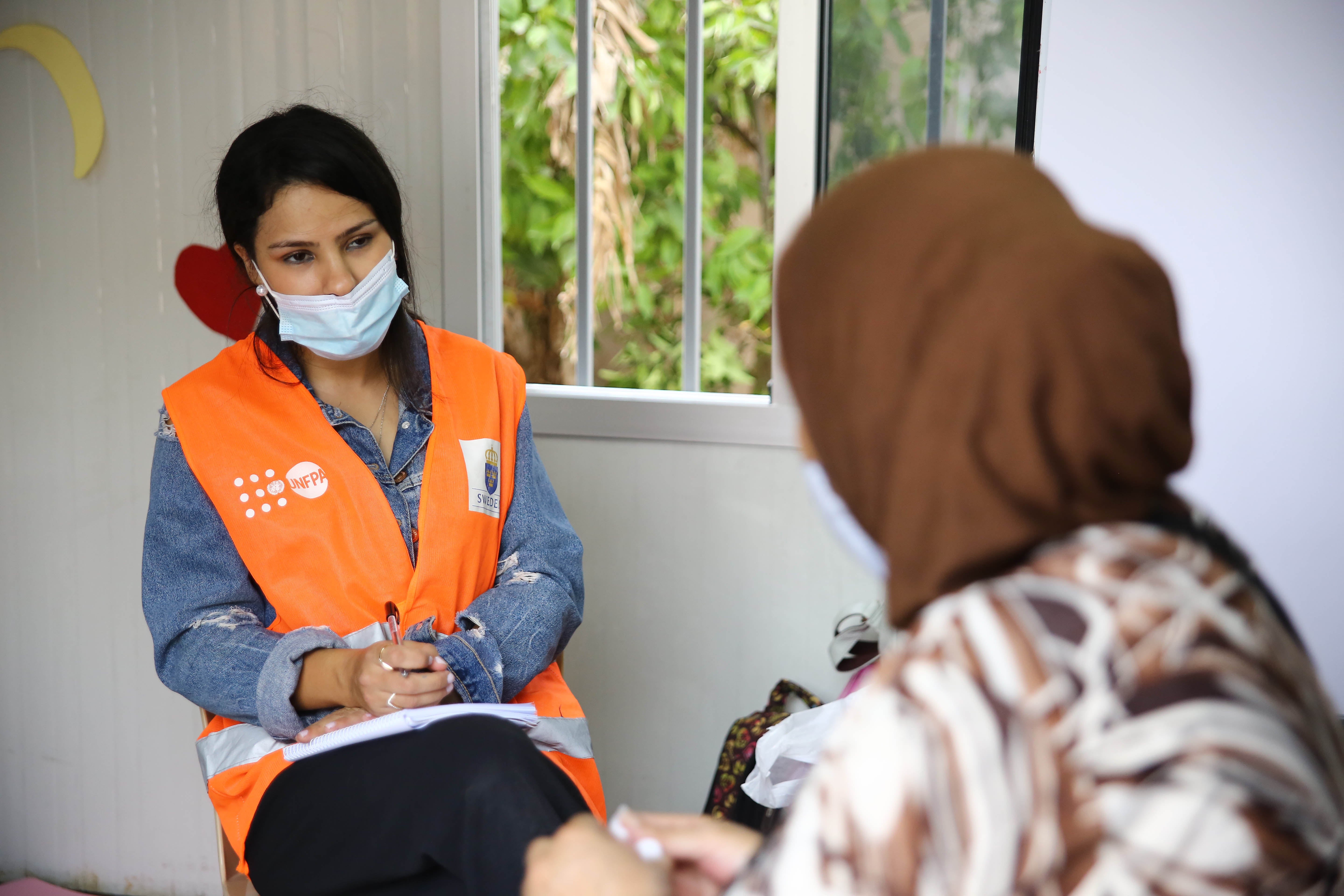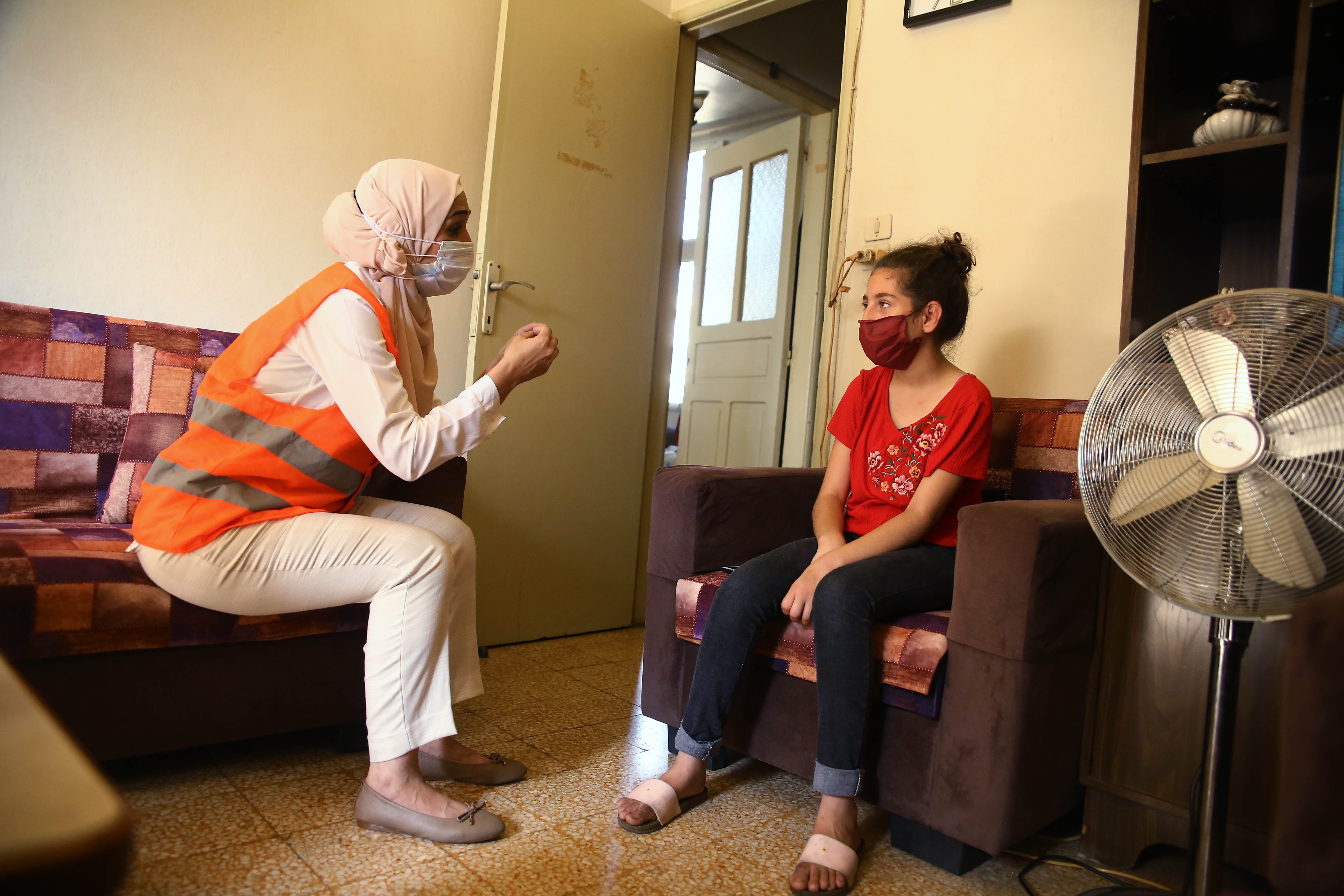ON WORLD MENTAL HEALTH DAY, LET US NOT FORGET THE PSYCHOSOCIAL NEEDS OF THE BEIRUT BLAST VICTIMS
Two months after the blast that devastated Beirut and its residents, many are still addressing their basic physical needs. Survivors are also suffering from post-traumatic stress and require vital mental health and psychosocial support. This year’s World Mental Health Day, 10 October, comes at a time when the lives of many Lebanese have changed considerably as a result of not only COVID-19, but also of the unprecedented economic crisis, which was only compounded by the horrible explosion. That makes it even harder for people with mental health issues.
Survivors have initially experienced various signs of trauma, such as nightmares, anxiety, anger, flashbacks, crying spells and exhaustion. “If the door of the room slams, my children start screaming: Mom! There is war!” said a mother of four in the affected area.
After escaping injury from shattered glass, the pregnant Hamra El Bader was rushed to the hospital one day after the explosion and delivered her baby before her due date. “Losing my baby was all that I was worried about,” she said.

TREATMENT CAN HELP
In Lebanon, UNFPA has trained more than 40 social workers, gender-based violence case managers and community mobilizers on psychosocial support, including ways to provide psychological first aid. The initiative is helping women and girls strengthen their capacity and overcome their everyday challenges.
“It is very essential to listen to women’s needs and know how to guide them in the midst of such an emergency,” said Gabby Fraidy, a social worker and a team leader from The Lebanese Council to Resist Violence Against Women (Lecorvaw). With UNFPA’s support, Lecorvaw and other partners have been providing psychosocial support sessions to women and girls, specifically to provide them with a sense of empowerment and self-realization.
This type of support is not limited to group sessions only. UNFPA partners are also examining Beirut’s affected neighborhoods through door-to-door visits, and providing support to whoever is in need. “I don’t want any financial aid. I just need someone to listen to my sorrow. I live alone and days feel like years,” said Laurice, an 85-year old resident of the affected Mar Mekhael neighbourhood.

Iman Basyouni, a psychosocial support officer from the UNFPA-supported Naba’a organization, has been helping meet the needs of women and girls through door-to-door visits. “I met young girls who were traumatized and got their first menstrual period after the explosion. One of them is 10 years old. I’m currently conducting individual sessions with her and her mother to help them overcome this tragedy.”
Many people have never dealt with their traumas and do not know how to help their children. For example, Mariam’s son is unable to return to their home following the explosion. Just like many others in Beirut, he is still grappling with trauma. “His younger sister and brother are asking about him and want him to come back,” said Mariam. “They were already emotionally and mentally tired from everything that was happening in the country - the economic crisis, the coronavirus and the lockdown. With the explosion, things only got worse."
“Two months after the Beirut Blast, and after the initial shock and trauma reaction, the population is trying to have some level of normalcy by reconstructing houses, work settings etc….,” said Dr. Brigitte Khoury, Director of the Arab Regional Center for research and training in mental health at the American University of Beirut. “Now is the time when we start seeing who are the vulnerable individuals who need further mental health support than the initial immediate response, and who are starting to suffer from symptoms and problems which are impacting their daily life,” she added.


